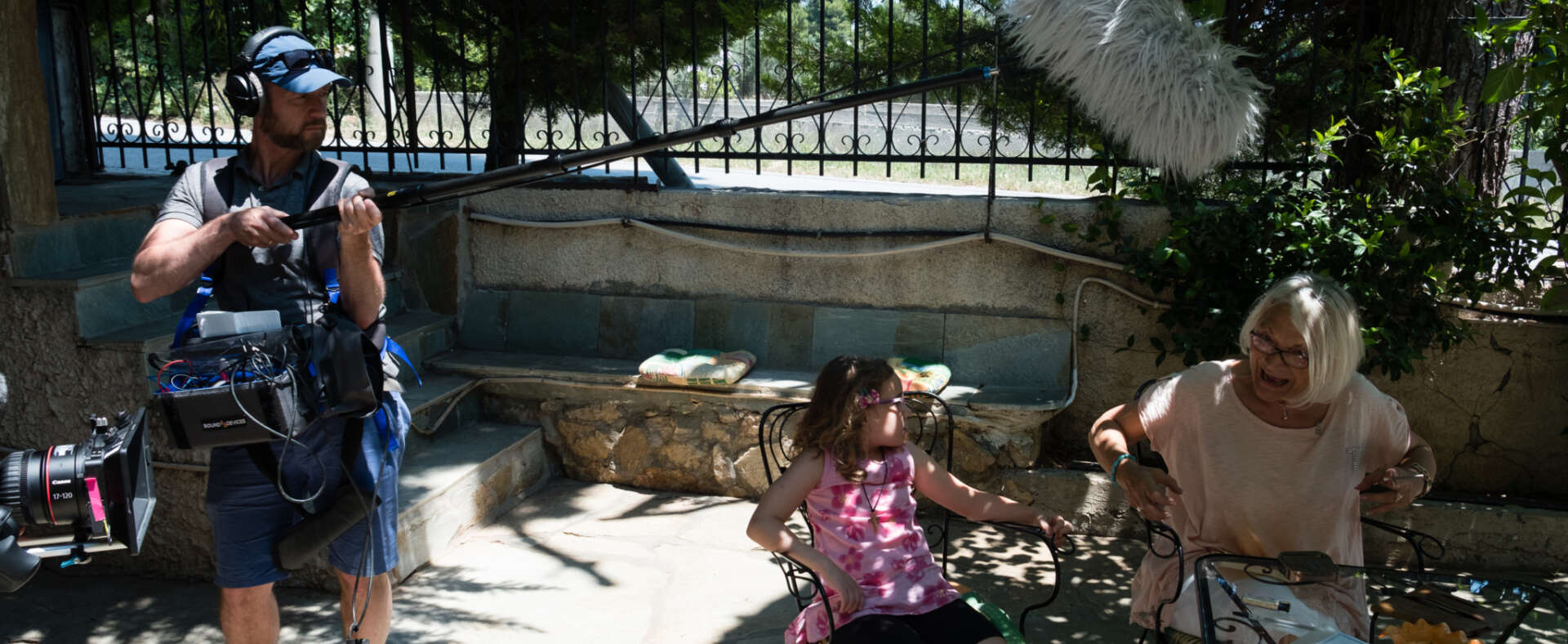WRITTEN BY: Annika Pham
IDFA: Norwegian director/producer Håvard Bustnes competes at the VPRO Feature Length programme with Golden Dawn Girls. We spoke to him.

IDFA: Norwegian director/producer Håvard Bustnes competes at the VPRO Feature Length programme with Golden Dawn Girls. We spoke to him.
The film is a unique and disturbing behind the scenes of Greece’s far right movement Golden Dawn, seen from the angle of the women at the heart of the political party - a mother, a daughter and a wife of three leaders, devoted to neo-Nazi ideology.
Bustnes who has directed several award-winning films over the last decade such as Two Raging Grannies and Big John, says Golden Dawn Girls was his most challenging work ever for ethical and practical reasons.
How did you penetrate the inner circle of Golden Dawn?
Håvard Bustnes: The producer of the film Christian Falch had done a film about black metal music called Blackhearts and during the research, he came across a former black metal musician [Giorgios Germenis] far-right MP for Golden Dawn, who is married to one of the main female characters, Jennie. So the first time we went to meet the Golden Dawn family members, I made sure I wore a black T-shirt to look like a Black metal fan!
My initial idea was to show how far-right party members raised their children. I was curious to see how they taught their nationalist ideas and explained their world to a child. But there were too many ethical questions and problems related to filming a child.
How did you gain their confidence?
HB: That’s a story in itself and it’s very complicated. At the beginning when we first met, I didn’t know what they thought about me/our crew and our political views. I thought maybe they believed that we were supporting them. I was too afraid to ask and never did during the filming. However, I often confronted them with critical questions about the Golden Dawn ideology and violent acts, especially towards the end of the shooting. The last day I asked: ‘what do you think about me and my political standpoint? They said: ‘we knew all along that you are not supporting us.’
In the film we can see your equilibrist exercise, as you try to challenge the women at the risk of having them stop the filming process…Was it a constant battle?
HB: Yes. It was more like a tug of war. I understood early in the process that they tried to control the film in every way. We had a good access to them, but sometimes the main female protagonists would ask their husbands about letting us film certain places or people. So in a way, they controlled what we could film or not. For me as a filmmaker, it was a true dilemma.
Having spent so much time with them at crucial times, when their ‘men’ where imprisoned, accused of being part of a criminal organisation, then released, what did you find the most fascinating or terrifying about the Golden Dawn women?
HB: First of all, it was important for me to portray them just as human beings. In a way, it would have been easy to show them as evil beings, hooligans, different from us. But it’s not so simple. One of my biggest questioning during the entire project was do they really believe in their cause and extremist ideology, or is it just a façade? I know now that they truly believe in their cause, and they used excuses to justify their men’s violent behaviour for instance against immigrants. What is also interesting is their belief in conspiracy theories. I think they are scared, they feel at war, and when you are afraid, you’re willing to go the extra step and use violence to protect yourself.
Can you explain your visual choices, mix of Hollywood-style talking head interviews, archive material and normal footage with low light, as well as your decision to be both in front and behind the camera?
HB: We used every trick in the book in documentary filmmaking! We had interviews, fly on the wall scenes, staged scenes. That was part of my strategy, to try every possible filmmaking trick to go behind these women’s masks. I also appear in front of the camera to show how I had to do this tug of war with them. Initially, I hadn’t planned to be part of the film, but then we decided to give more prevalence to my struggle to make the film and make it an integrated part of the story.
How do you think the Golden Dawn women will react to the film?
HB: We have arranged a screening for them in Greece. Who knows, maybe they will like it. They are proud of what they are doing, although we believe it is wrong.
What’s the distribution plan for the film?
HB: We have done pre-sales to broadcasters [including NRK, DR, SVT, VPRO, CH8] and DR Sales handles world sales. In Norway Storytelling Distribution will release the film in cinemas probably in February 2018.